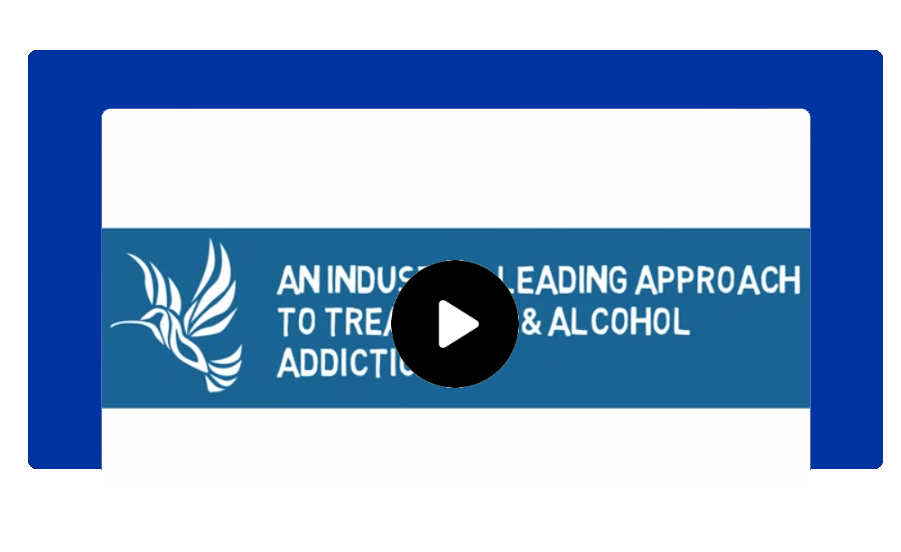Marijuana Drug Addiction, Risks And Treatment
Addiction is a condition where the psychological state of a person is compromised.
Several kinds include alcohol, opioids, cocaine, meth, Cannabis or Marijuana, and other unspecified substances. These illicit substance groups are highly addictive, posing significant psychological and physical harm to those who use it.
According to records, approximately 55 million or roughly 16.9% of 331 million people in the U.S. use illegal substances. At the same time, 30% of this number have substance abuse disorder. And with this alarming number of dependents, help is very much needed.
The hemp plants possess low levels of tetrahydrocannabinol (THC), the plant’s mind-altering effects. Evidence has shown that ancient people have used cannabis for its healing and religious properties for example the Shaman graves in China and Siberia indicated burned seeds of cannabis in 500 BC.
Irish doctor, Sir William Brooke O’Shaughnessy discovered cannabis extracts. He started using it in 1830 to ease vomiting and stomach pain for people with cholera. In the latter part of the 1800s, pharmacies in the E.U. and the U.S. sold cannabis to treat stomach aches.
Cannabis Addiction
The toxins that marijuana produce (Benzene and Methacrolein) create dependency, addiction, psychopathology, and other high-risk behaviors. Chronic use of marijuana or Cannabinoid hyperemesis syndrome affects the gastrointestinal tract and can cause abdominal pain, nausea, and vomiting.
Medical Aspects of Marijuana Addiction
The chemical compounds, if given in the correct dosage, may help treat various health-related problems. They include chronic pain relief, decrease of anxiety, and weight loss.
Marijuana also prevents diabetes, fights cancer, treats depression, helps in autism treatment, and regulates epilepsy seizures. Additionally, it heals broken bones, helps treat ADHD/ADD, treats glaucoma, slows down Alzheimer’s disease development in older people, helps with tremors in Parkinson’s disease, and ease anxiety attacks.
Marijuana Addiction Effects on the Body and Mind
- Getting a ‘high’ the THC’ sparks a part of the brain responding to pleasure and releases dopamine, a chemical that gives a euphoric, relaxed feeling
- Chances for Clinical depression may worsen.
- Short-term marijuana use impairs memory (learning problems, problem-solving), disinhibition, loss of coordination, and impaired judgment.
- Long term use leads to addiction, reduced intellectual level, and psychological impairment.
- Complications in the lungs including asthma, bronchitis, emphysema, and other chemical dependencies that suppresses the autoimmune system of the body
- Stroke and heart attack
Associated with regular or frequent marijuana use also produces premalignant lesions that lead to lung cancer and schizophrenic attacks.
Risk of Marijuana Use
Marijuana may cause loss of I.Q. by 8 points. Suppose a person starts using it at an early stage, but even then, quitting can never recover the lost I.Q. Points.
Conditions such as depression, anxiety, suicide planning, and psychotic episodes are linked to marijuana abuse.
Frequent marijuana use affects timing, movement, and coordination, harming performance in sports.
Being in front of the wheel of a vehicle may affect a person’s coordination. The immediate reaction to situations on the road like road and traffic signals, attention to commuters, and the like may result in accidents and loss of life.
Marijuana can hinder a baby’s development inside the mothers’ womb. Prenatal problems may occur, such as baby growth restrictions, premature birth, stillbirth. Added chemicals in the brain can result in poor cognitive function and hyperactivity of the child after birth. Chemicals from marijuana can also be transferred through breast milk preventing a baby’s healthy development.
Research says that people who use marijuana have relationship problems, low self-esteem, low performance in school, and reduced life satisfaction.
Signs and Symptoms of Marijuana Abuse
Having at least two of the symptoms for 12 months of use of marijuana are signals of substance abuse.
- Craving or the strong desire to use marijuana
- Continues to consume a large amount of marijuana for a more extended period
- Tries to quit the habit with no avail.
- Leaves essential things to get intoxicated
- Continued use of marijuana shatters social relationships due to related psychological and physical problems related to it.
- Using the drug excessively and spending a lot of time recovering from its effects
- Lessened interest to activities previously enjoyed
- Cravings for more of the substance to arrive into the desired effect
- Struggle with the withdrawal syndrome when on a ‘run out’ on the access of marijuana.
Helping a Marijuana Addict
Marijuana use is known to have temporary effects; however, a mental health problem, psychosis, is linked to it. Psychosis can be treated but should be done as soon as possible. The vulnerable population that develops psychosis belongs to teenagers and people in the early twenties.
Finding Marijuana Addiction Treatment
Marijuana is not a harmless drug; it can trigger mental illnesses and hinder a promising future. Getting immediate help may make a big difference. Finding, identifying, and knowing the right place to go may find you and your loved one refuge and sanctuary.
Intervention at Ambrosia Treatment Center promises a world-class, and affordable rehab facility backed up by addiction therapies, physicians, and recovery specialists.
Primarily, the Center focuses on treating the mind, body, and spirit with proven personalized and innovative treatments- covered by insurance. A 24/7 family support helpline is also in place to secure feedback on the progress of the patient.
Ambrosia Treatment Center answers queries about various addiction forms with the utmost respect to the patients and the family.

Marijuana Addiction Detox
Getting rid of the THC has its share of withdrawal syndrome, which can be physical or physiological. For whatever reason, it manifests physically. Some may also have emotional or mental changes when stopping. THC, the chemical in marijuana accumulate in the body’s fat cell and is thus challenging to excrete as compared to water-soluble substances.
Substance abuse always has its unique withdrawal syndrome. Marijuana users’ withdrawal syndrome includes insomnia for a few nights of no sleep and occasional sleeplessness for months to follow. What follows is depression/euphoria, then, nightmares, and finally, vivid dreams.
Anger comes next, from slow-burning rant to irritability to burst of rage. The emotional juggle kept bouncing back and forth from anger, depression, and euphoria. Sometimes, the feeling of fear and anxiety, loss of humor, decrease or increase in sex drives is visible. And after three months, slowly fades and comes back to normal.
Three or more of the listed symptoms must be exhibited by the patient physically. These are the indications of a withdrawal syndrome timeline.
- A week after the discontinued use, symptoms may appear.
- Symptoms peak appear after the discontinued use.
- In 10 – 20 days, the severity of symptoms will have a steady decline.
- Withdrawal syndrome concludes if the patient starts smoking marijuana again.
- Frequency, length of use, and usage amount will depend on the severity of symptoms and the time to detox.
A detox program will help chronic users of marijuana. Professional supervision from medical practitioners is highly recommended to lessen withdrawal syndromes. At Ambrosia Drug Treatment Facility, patients obtain a higher chance of having a relapse and stay sober.
There are several reasons for having a detox, and it includes:
- A mental disorder that goes with marijuana addiction – people tend to self-medicate, especially on mental health problems, for fear of criticisms. Medical detox works along with this problem, along with marijuana addiction.
- Setting oneself in quitting the habit but tends to fail – Withdrawing from chronic marijuana use is so uncomfortable. Seeking medical help from professionals is very much needed.
- Environment – the standard of living boost substance abuse, and crushing a lousy habit is next to impossible. A detox program can bring about a home away from home feeling added with busting addiction.
Marijuana Addiction Treatment
Appropriate Marijuana addiction treatment may include:
- Psychological education – fallacy may hinder the patients’ cooperation in the treatment. The primary treatment is educating the patient and the family with the facts and dangers of the substance.
- Therapy – therapeutic options suited for the substance used and addiction vary and depend on their needs. Individual and or group therapies specifically made and related and only to mental health issues and proved to be useful. The patients’ willingness to cooperate in experimenting with modalities designed to help will create an impact.
- Family Education and therapy – Education is crucial; the family as the support factor is essential. In this way, users are assured of a safe and secure environment for treatment and proper therapy. These ensure boundaries and limitations to the patient without being too critical.
- Community support- To assist a marijuana user in recovering quickly, engaging in community programs is of great importance. Programs such as the 12 steps meeting will allow the patient to hear stories of a personal battle with addiction and win the war of addiction.
- Drug testing – for residential clients, outpatient drug testing plays a role. Traces of the substance detection through urine screenings even after four weeks after use. This test acts as a hindrance to gain incentives as motivation for success rate.
Fast Facts About Marijuana
- With 22.2 million users in a month, marijuana is illegal in the United States.
- Based on research, 1 in 10 Marijuana users will become addicted.
- The brain is directly affected by marijuana use. Parts of the brain designed for memory, learning, attention, decision making, coordination, emotions, and reactions are significantly compromised. The growing minds of babies, toddlers, and children are very prone to the harmful effects of marijuana.
- Food and beverages that contain marijuana pose different risks than smoking marijuana, and that includes poisoning.
- The increased risk of psychosis or schizophrenia is linked to constant or long-term use.
- The developmental problem increases the risk of pregnancy accidents.

Marijuana Addiction Treatment in South Florida
Relapse poses a severe threat, a risk where the endless cycle of abuse may continue the menace it has done to a person’s life. For help with marijuana drug addiction, contact Ambrosia Treatment Center today.








